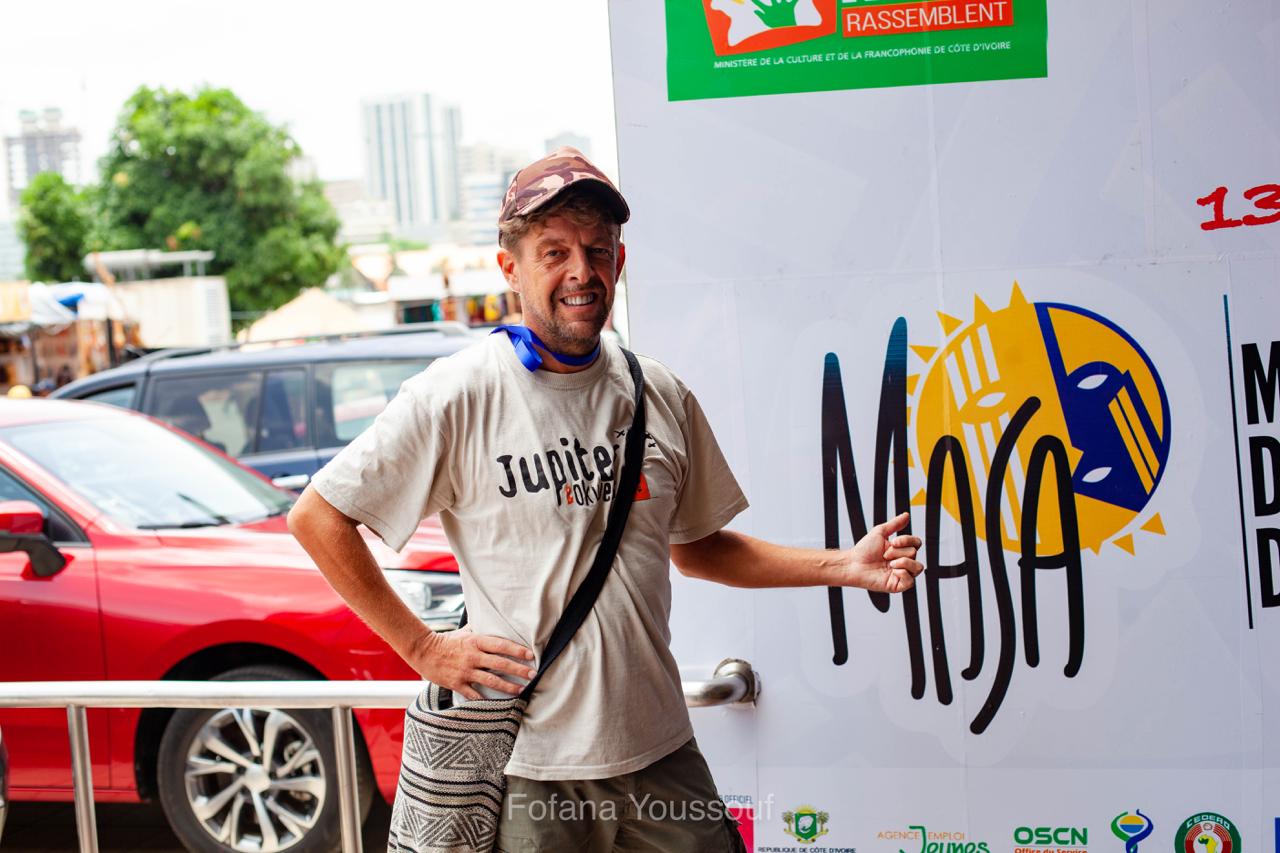
Founder of Afropicks and international tour operator based in Colombia, Cédric David is present at MASA to unearth talent and explore opportunities for collaboration. Between jobs, he talks about his work and expresses his ambition to introduce African artists to Latin America. Interview.
By Yacouba Sangaré
How did the idea for Afropicks come about?
I live in Colombia. In 2012, we set up a big project with France, we have 55 people from France including promoters, colleagues, and five artists including Amadou and Mariam. People cried listening to Amadou and Mariam. For me, that was the trigger that launched me into the development and circulation of the continent’s music in Latin America.
It’s an area that’s still a long way from Africa. How do people over there welcome black music?
Do you know how many Afro-descendants there are in Latin America? Colombia has a population of 48 million, 30% of whom are black. Many Colombians are originally from the Congo or Ghana. So there are very strong cultural ties, even blood ties, between Colombian populations, particularly on the Pacific coast, the Atlantic coast and the Colombian islands. The people there are of African origin. There’s a huge amount of respect, curiosity and ignorance about Africa.
How do you choose the artists you take to Colombia?
You have to be a bit strategic. To open up the Latin American circuits, we needed some pretty big names. The fact that we’d played Amadou & Mariam there several times enabled us to bring in other artists. After that, we continued with big names. Salif Keita, Ballaké Sissoko, one of the masters of the Kora, Femi and Seun Kuti, the children of the great Afrobeat master Fela Kuti. And then we had the pleasure of working with Jupiter & Okwess from Congo (DR), Mulato and other artists. After that, I’m now bringing in artists that I’m promoting. That’s why I’m here. You’ve got Bideew Bou Bess, with whom I’ve just toured Senegal, and the Seydou Brassouna trio from Benin. Indeed, I had to strategically open up circuits, generate media interest and show just how well it works. My clients, who are festivals and theaters, pay close attention to what we propose. And every time, it’s been good. The effervescence of the African continent at the moment is giving it a very high profile. A lot of people are realizing that something is happening in Africa. Of course, Africa has always been very creative, but now it’s realizing its strength. It’s more independent, more autonomous. That’s what interests us.
Do you initiate collaborative projects between African and Colombian artists?
Of course we do. Our dream is to create these bridges and collaborations. When we bring in African artists, they invite Colombian musicians on stage to accompany them, with guitar, saxophone and so on. We also do co-creation. For example, we did a song with La Mambanegra, a salas class from Cali. We’ve also initiated projects in Mexico and Chile. We try to make sure that something happens in both directions. The difficulty is to find the time. Our effort is to create links between Latin America and Africa. Colombia is in the process of opening an embassy in Dakar and a direct flight to Senegal. Colombia’s vice-president, Francia Márquez, is originally from the Congo. She has a strong history. She started out as a domestic worker, then studied to become a lawyer, and today she’s Colombia’s 2nd most important personality, and she wants to forge links with African countries.
You’re currently at MASA. What are you looking for?
There are three main reasons. Firstly, to see if an artist enchants me and I feel a professional environment around him. Then I sign them in my catalog. Secondly, to find an artist who interests me for a specific festival, because I also produce festivals. At the moment, I’m trying to announce Alpha Blondy because he’s well known over there. Finally, I meet with colleagues who, like me, are involved in cultural management and are looking for opportunities to collaborate.
Have you unearthed any talent here that you’d like to tour at festivals?
There’s one I’d really like to work with. It’s Suspect 95. On the other hand, I saw an extraordinary lady whom I loved and with whom we’re going to do something, Nelida Karr, who comes from Equatorial Guinea.
People say that being a turner isn’t easy. What are the constraints of this profession?
The administrative side of things, particularly contracts and visas, is a real worry. Then there are the ups and downs of flying. The lack of professionalism on the part of certain groups is a real problem. For example, departure is set for 6 a.m. and at that hour, the guy is still in bed. You re-coach him, but then it starts all over again. For some, it’s a cultural problem. On the other hand, some artists are very professional. They stick to show schedules and travel schedules. Our profession involves a lot of travel, which isn’t always easy. But I’m happy to be in this business, developing talent in Latin America and the Caribbean.
